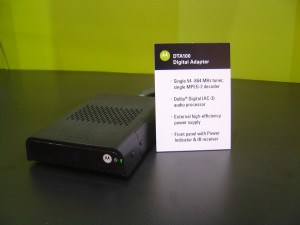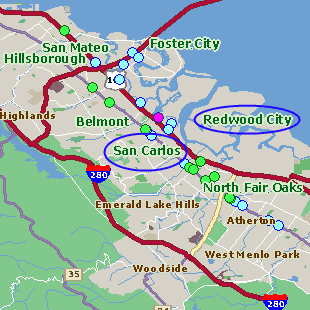 Frontier Communications has announced the availability of Metro Ethernet service to a total of 55 cities in 11 states, with one Frontier representative describing it as perfect for individuals “who are serious gamers, people who download videos and those who watch TV and movies on their computers.” Apparently Diana Anderson, technical supervisor for Frontier in Kennewick, Wash., has not read Frontier’s Washington State service tariff (5.7.7b) to understand the cost implications of signing up for the service.
Frontier Communications has announced the availability of Metro Ethernet service to a total of 55 cities in 11 states, with one Frontier representative describing it as perfect for individuals “who are serious gamers, people who download videos and those who watch TV and movies on their computers.” Apparently Diana Anderson, technical supervisor for Frontier in Kennewick, Wash., has not read Frontier’s Washington State service tariff (5.7.7b) to understand the cost implications of signing up for the service.
Metro Ethernet falls between DSL and fiber optic connectivity, and delivers service at speeds that can approach 100Mbps or more, depending on telephone company facilities and the distance of copper between your home or business and the central switching office. There are Metro Ethernet services that work over fiber networks, fiber-copper hybrid networks, and even traditional copper landlines — the ones Frontier uses to deliver its MetroE service.
Frontier is pitching Metro Ethernet primarily to medium and large-sized businesses who need more speed than the phone company can offer over its traditional DSL products. The reason it’s not marketed to consumers is the cost. Frontier’s Metro Ethernet service is included in Frontier’s tariff for Washington with an installation fee of $320 and a Metro Ethernet-Special Transport fee of $75 a month per DS1 (1.544Mbps). Customers can get additional speed above 1.544Mbps by paying for additional DS1’s.
We called Frontier’s customer service and asked about service pricing in the Rochester area. A residential customer service representative had to transfer us to the business products office — they do not sell “residential” Metro Ethernet. A representative there said the service was available in several parts of Rochester, but was “completely unfeasible” for residential customers because of its cost. Frontier DSL is the recommended solution for all residential customers in western New York, despite the fact the service does not exceed 3Mbps in our neighborhood (although it is marketed at speeds up to 10Mbps locally).
The following communities now have access to Frontier MetroE service:
- Coeur d’Alene, Idaho
- Bloomington, Carbondale, DeKalb, Freeport, Jacksonville, Lincoln, Marion and Olney, Illinois
- Elkhart, Fort Wayne, Lafayette, Richmond, Terra Haute and Valparaiso, Indiana
- Adrian, Coldwater, Mount Pleasant, Muskegon and Sturgis, Michigan
- Bryson City, Burnsville, Cherokee, Creedmoor, Durham , Hayesville, Marion and Murphy, North Carolina
- Gardnerville, Nevada
- Athens, Bowling Green, Delaware, Jackson, Marion, Medina, Troy and Wilmington, Ohio
- Beaverton, Coos Bay, Gresham and Hillsboro, Oregon
- Myrtle Beach, South Carolina
- Everett and Kennewick, Washington
- Merrill, Sun Prairie and Wausau, Wisconsin
Let us know what kind of pricing and promotions you can get from Frontier for Metro Ethernet in your area in our comments section.


 Subscribe
Subscribe






